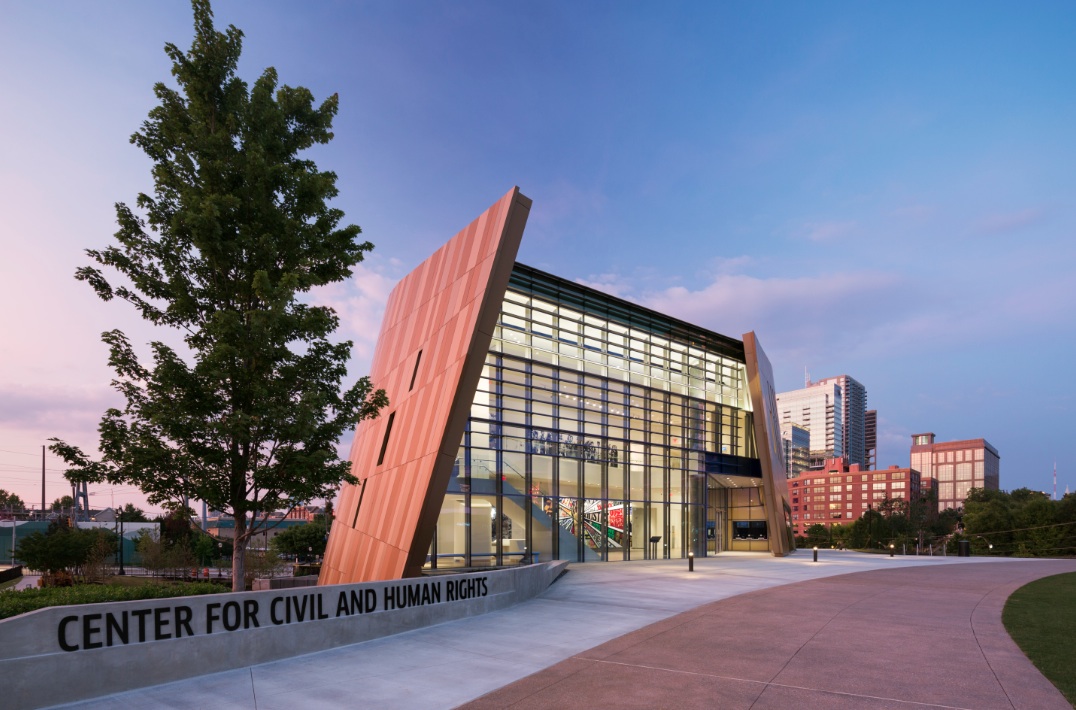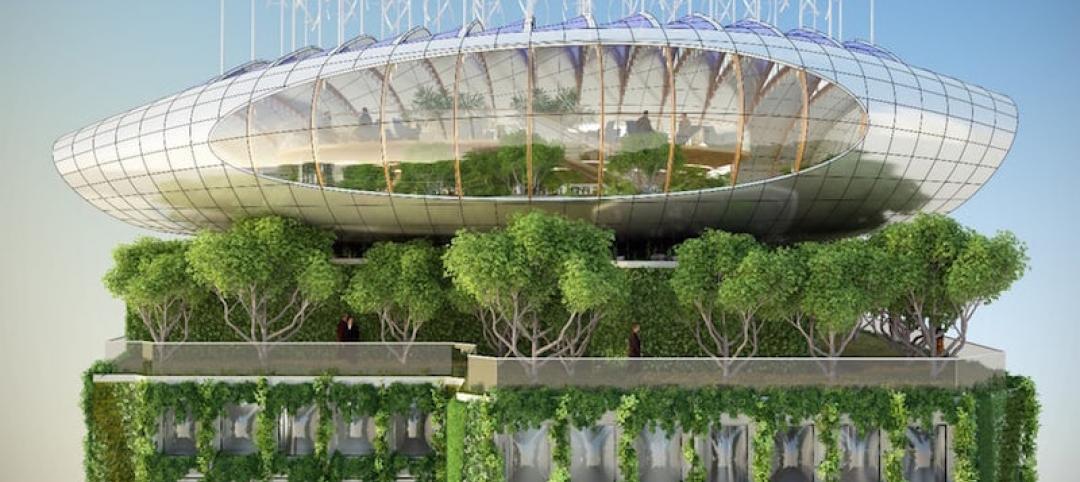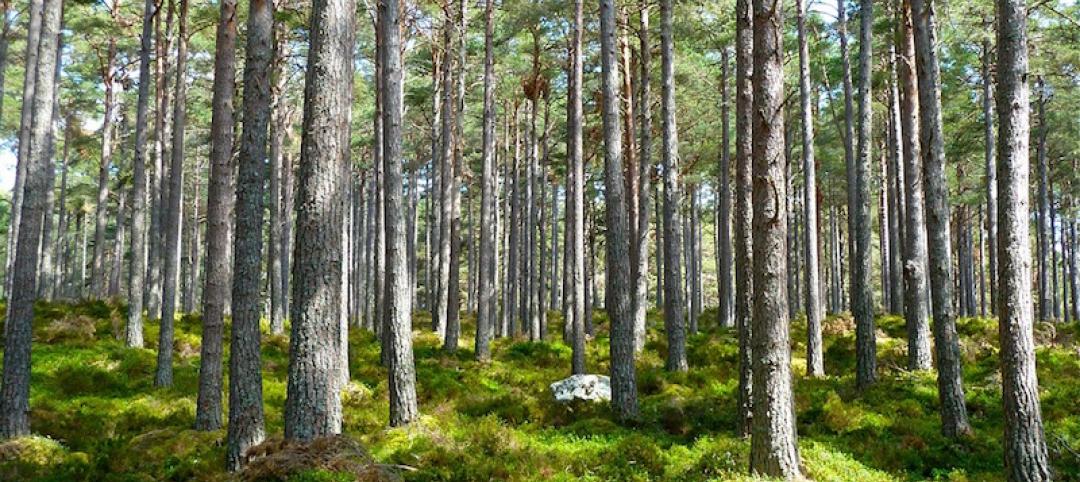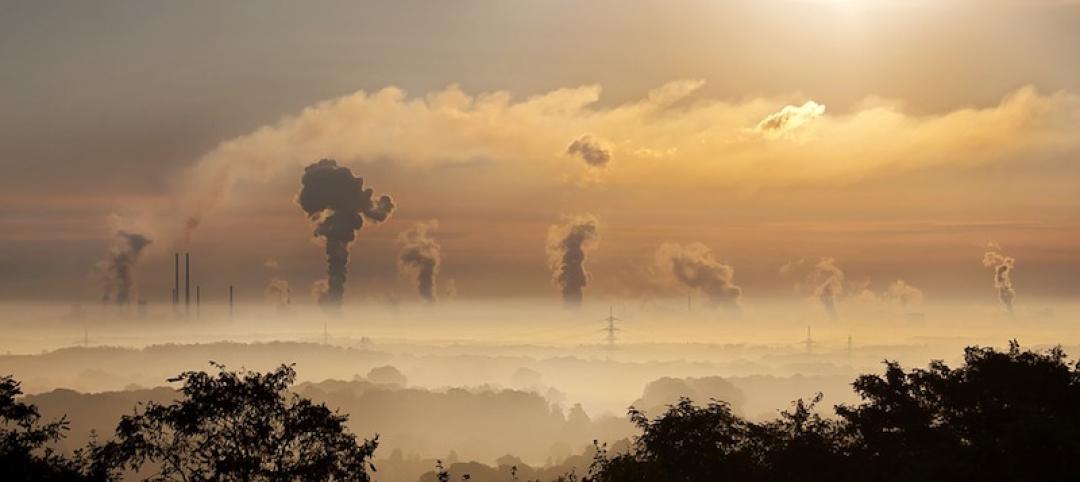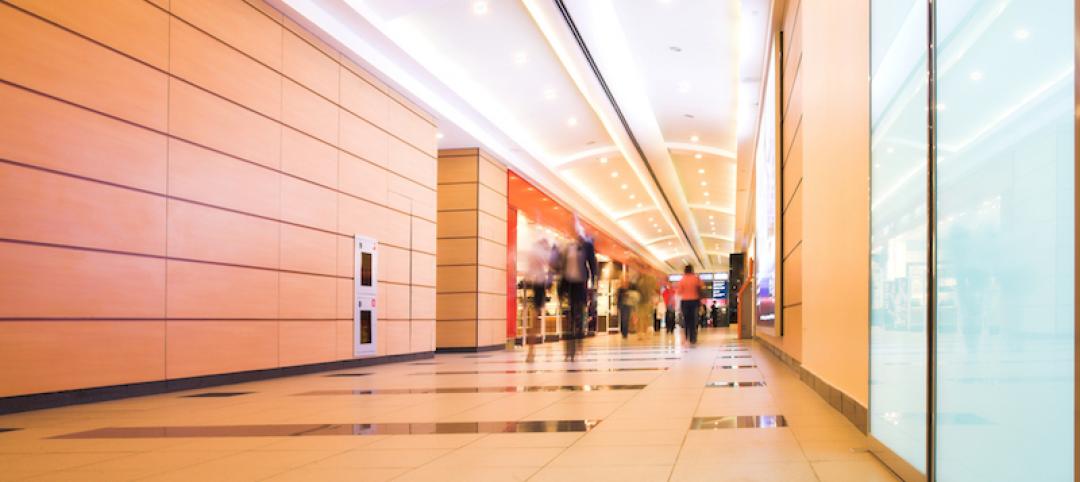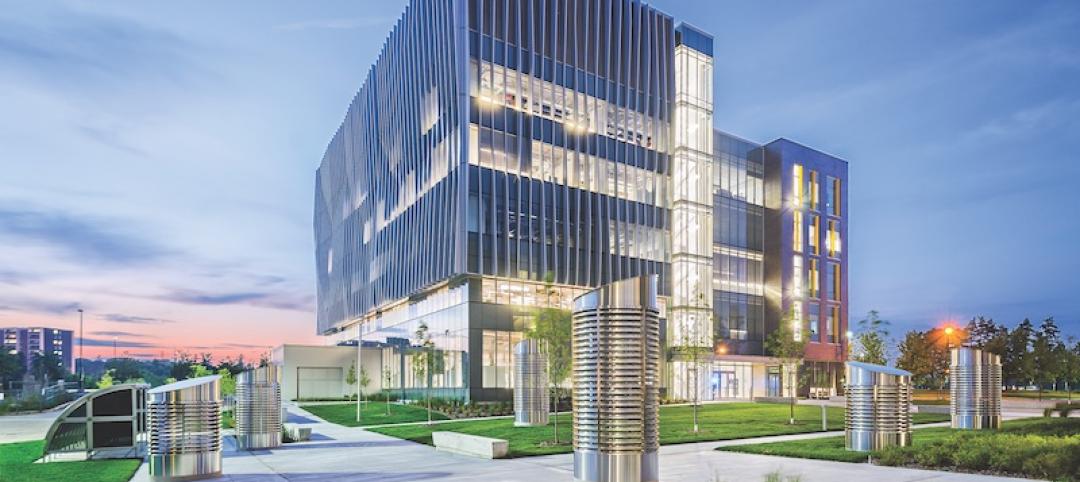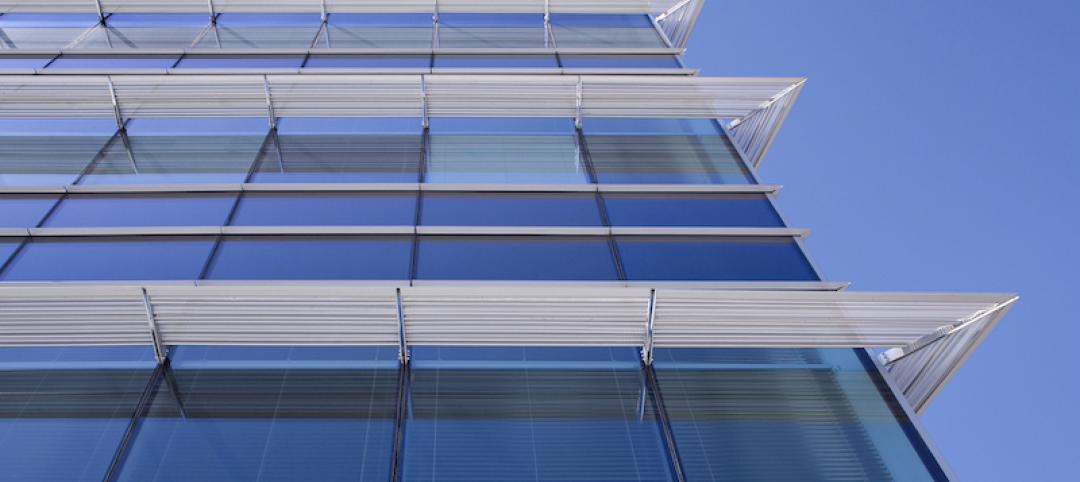Now in its fifth year, the per-capita list is based on 2010 U.S. Census data and includes commercial and institutional green building projects that were certified throughout 2014. Illinois retained its top national position for the second year in a row, with 174 LEED certifications representing 3.31 square feet of LEED-certified space per resident.
Two newcomers to the list, Georgia and Arizona, show that 2014 was a year of major growth for LEED in the South and Southwest regions of the country, while the continued strong performance of Washington, D.C., Maryland and Virginia have helped the mid-Atlantic region remain the epicenter of green building across the country. Washington, D.C., which is not included on the official list of top states due to its status as a federal territory, is notable as it continues to lead the nation with 29.44 square feet of space per resident certified in 2014. Maryland and Virginia finished third and fourth respectively, and both states increased their per capita totals to 2.70 and 2.33 square feet of LEED space per resident in 2014.
The 2014 list had the highest average (2.34) of per capita space certified per resident per state since 2010, and the second highest average to date. Six of the eight states (Ill., Colo., Md., Va., Mass., and Hawaii), which were also on the list in 2013, increased the amount of square feet of space they certified per resident in 2014. Illinois and Colorado are the only two states to make the list every year since 2010.
The full ranking is as follows:

USGBC calculates the list using per-capita figures as a measure of the human element of green building, allowing for a fair comparison of the level of green building taking place among states with significant differences in population and, accordingly, number of overall buildings.
In 2014, LEED for Building Operations and Maintenance was once again the most popular rating system within the top 10 states, representing 48 percent of the total square footage certified. LEED for Building Design and Construction was the second most popular rating system in the top 10, representing 46 percent of the square footage certified and LEED for Interior Design and Construction was the third most popular rating system, representing 6 percent of total square footage certified in these states in 2014.
A sample of notable projects that certified in these states in 2014 include:
- Illinois: The Aon Center, a 3.2 million-square-foot tower in Chicago owned by Jones Lang LaSalle, LEED Silver
- Colorado: Denver Museum of Nature & Science’s Morgridge Family Exploration Center in Denver, LEED Platinum
- Maryland: NASA Goddard Space Flight Center Building 26 in Greenbelt, LEED Gold
- Virginia: University of Mary Washington’s Technology Convergence Center in Fredericksburg, LEED Silver
- Massachusetts: Winchester Hospital Ambulatory Surgery Center in Winchester, LEED Gold
- Hawaii: City Financial Tower in Honolulu, LEED Gold
- California: Levi's Stadium in Santa Clara, LEED Gold
- Georgia: The Georgia World Congress Center in Atlanta, LEED Silver
- Minnesota: Wells Fargo Center in Minneapolis, LEED Gold
- Arizona: Arizona State University Health Services renovation in Tempe, LEED Platinum
- New York: Golisano Institute for Sustainability at the Rochester Institute of Technology in Rochester, LEED Platinum
Collectively, 1,662 commercial and institutional projects became LEED certified within the top 10 states in 2014, representing 251.7 million square feet of real estate. Worldwide, 4,502 projects were certified in 2014, representing 675.7 million square feet.
More than 26,600 projects representing 3.6 billion square feet of space have been LEED-certified to date, with another 42,000 projects representing 8.8 billion square feet in the pipeline for certification. USGBC launched LEED v4, the newest version of the rating system, in the fall of 2013. The latest version continues to raise the bar for the entire green building industry, which Forbes Magazine projects could be worth up to $960 billion globally by 2023. LEED v4 features increased technical rigor; new market sector adaptations for data centers, warehouses and distribution centers, hospitality, existing schools, existing retail and midrise residential projects; and a simplified submittal process supported by a robust and intuitive technology platform.
Related Stories
Sustainability | Sep 19, 2016
Brussels’ Botanic Center apartment block looks to live up to its name with the addition of 10,000 plants and a rooftop “Chrysalis”
The project, which has been commissioned and is in the design phase, would eliminate CO2 and produce its own energy.
Energy | Sep 13, 2016
Oberlin College to hold conference on post-fossil fuel economy
The gathering will address climate change and new sources of energy.
BIM and Information Technology | Sep 7, 2016
Energy Star Portfolio Manager tool updated to factor in waste management
The costs and benefits of managing 29 types of waste are now included.
Sustainability | Aug 30, 2016
New federal project plans must include climate impacts
Agencies must quantify the specific impacts when possible.
Sponsored | Coatings | Aug 29, 2016
Making a greener future with biorenewable coatings
Biorenewable and recycled materials help eliminate waste and reduce the use of virgin materials
Green | Aug 29, 2016
Vancouver, B.C., to require zero emissions on new buildings by 2030
No net GHG emissions will be allowed.
Great Solutions | Aug 23, 2016
Visual energy model database demystifies net-zero design
Diamond Schmitt Architects’ ecoMetrics tool allows its designers to quickly analyze solutions based on models from 44 LEED-certified projects.
Energy Efficiency | Aug 17, 2016
Investor Confidence Project aimed at raising trustworthiness on energy efficiency projects
The new initiative screens projects to see if they are investor-ready.
| Aug 3, 2016
GREEN BUILDING GIANTS: Sustainability leaders turn to wellness and technology to get an edge
AEC leaders in green building are stepping up to a higher level of innovation and to be a green leader today, you have to dig deeper into data.
| Aug 3, 2016
Top 60 Green Building Engineering Firms
Jacobs, AECOM, and Arup top Building Design+Construction’s annual ranking of the nation’s largest green building sector engineering and E/A firms, as reported in the 2016 Giants 300 Report.


